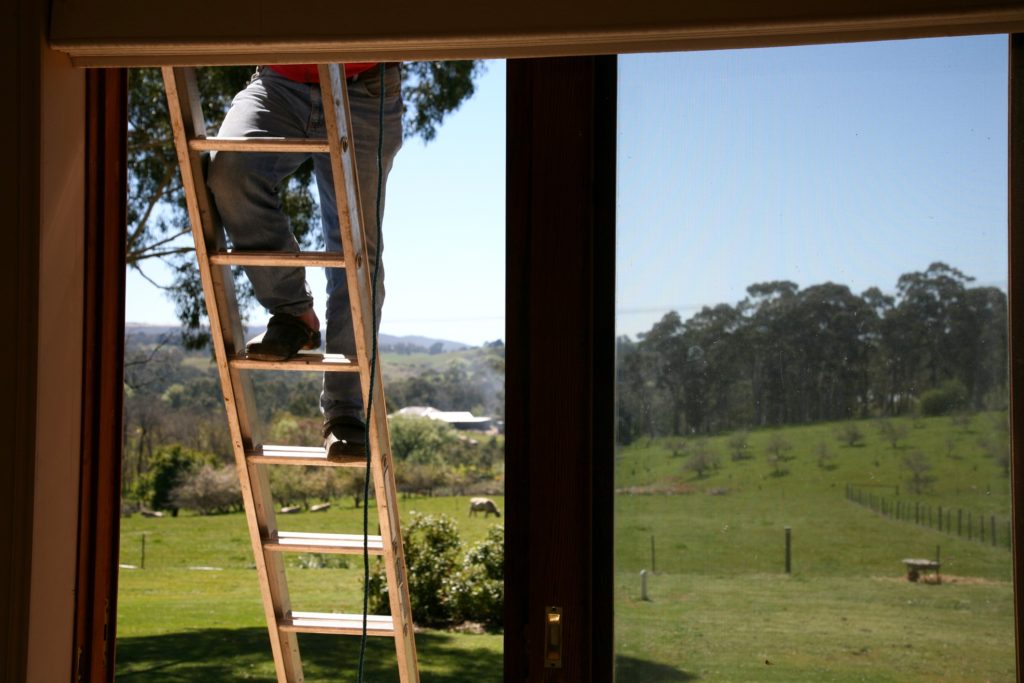A ladder is a basic household DIY tool that helps with an array of projects from hanging curtains, artwork, and décor to painting and cleaning the gutters. But it also presents its fair share of ladder safety hazards that could land you in the emergency room.
Whether this is all new to you or friendly reminders, we urge to observe these proven safety tips.
Choose the right type of ladder
Consider the project, your weight, plus the weight of any materials you’ll be carrying – and the environment – when selecting a ladder for the job. For example, if working near electrical lines, use a non-conductive fiberglass ladder versus aluminum to avoid electrocution.

Factor in height
Most indoor projects can be accomplished with the use of a step-stool, A-frame, or articulated ladder, which all provide a boost from two to eight feet. For outdoor projects requiring 13 feet or more, choose an extension or taller articulated ladder so you’re not tempted to stand on tiptoes.
Rest it on an even, non-slick surface
A ladder that’s placed on mulch, a bed of rocks, wet driveway or any other slick surface can slide out from under you as you move and shift your weight. Make sure the feet of the ladder rest on a level, solid, and non-slick surface.
Engage the locking device
No matter how quick and easy the job, failing to engage the locking mechanism could result in the ladder closing on itself, jerking you forward or back, and knocking you over.
Don’t place an extension ladder too close to the wall
If the angle between the ladder base and wall is too steep, the ladder could tilt backwards as you begin to climb. As a rule of thumb, position an extension ladder one foot away from the wall for every four feet of ladder length.
Maintain three points of contact
While climbing up or down or standing on a ladder, always maintain three points of contact to keep your balance. That means either two hands and one foot, or two feet and one hand.
Don’t overreach
Avoid stretching your arm or leaning in any direction to reach beyond the ladder. Instead, climb down and reposition it.
Don’t stand on the top rung or cap
Most ladders have a rung labeled as the highest safe level to stand. Stepping on or above that rung makes the ladder unstable and increases your chance of falling.
There are plenty of other ways home injuries can occur, many of which Messmer Mechanical can help prevent. Is your water pressure too high? We can fix that. Are any family members prone to slipping and falling in the bathroom? We have several remedies. Is your heating system so old you can’t remember when it was installed? Call us to schedule a thorough inspection to help prevent CO emissions or an electrical fire.
At Messmer, there’s more to us than you might think.




